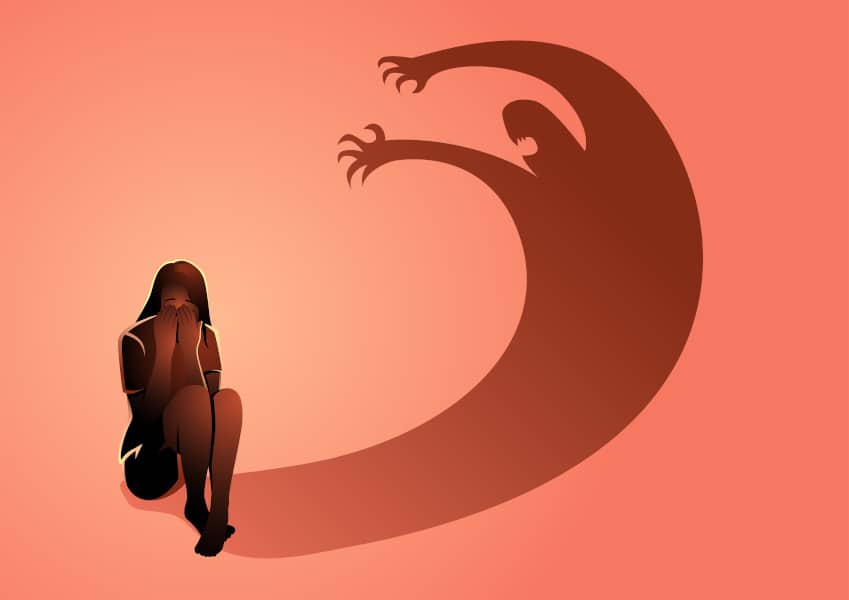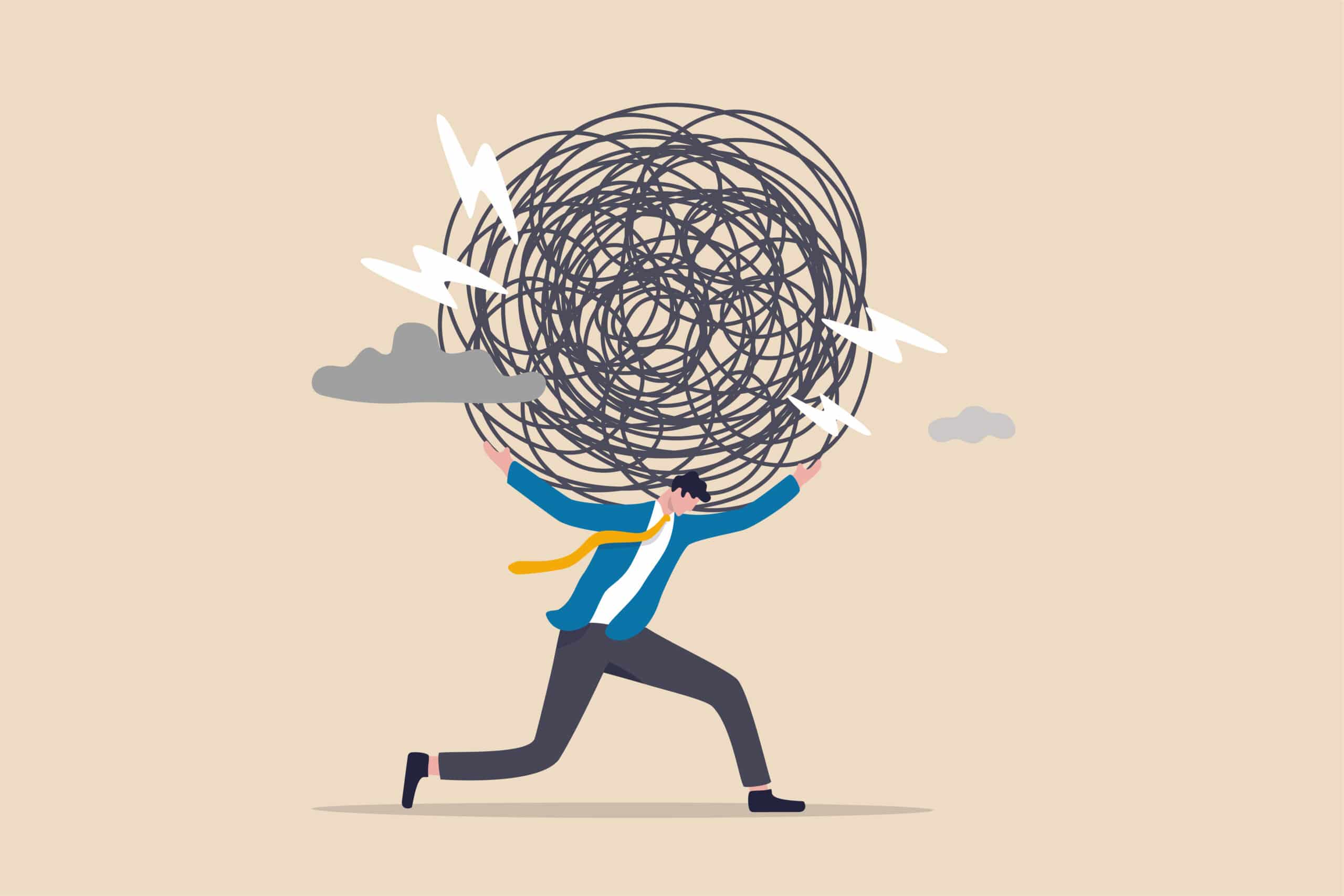Anxiety is a relatively common symptom of increased alcohol use, and for people who are prone to bouts of anxiety, it can exacerbate symptoms and impair functioning. Everyday anxiety over stressful situations can be normal, but when anxiety becomes too intense and prolonged it can become a problem. Individuals with an anxiety disorder will often drink to feel more relaxed and ease their symptoms. And while alcohol does put a temporary hold on anxiety, it is short lived.
What is the effect of alcohol?
Alcohol is a depressant and it alters the level of neurotransmitters in the brain affecting thoughts, feelings, and actions. As alcohol is consumed, the neurotransmitter, GABA, slows and drives the body to have sluggish movement, slurred speech, and slower reaction times. While one neurotransmitter is slowing, another is speeding up to generate feelings of pleasure. In addition to these areas, alcohol also impairs the region of the brain which leads to blackouts and short-term memory loss. Alcohol also causes parts of the brain associated with inhibition to depress, leading to feelings of relaxation and confidence, but as it wears off, more alcohol is needed to achieve the same mindset. Changes in the brain can become permanent and more damaging with increased levels of alcohol consumption.
Alcohol affects individuals differently. For some, they may wake up with a pounding head or an upset stomach, others may wake up to increased levels of anxiety and overwhelming feelings of nervousness. Individuals with social anxiety may be worried about they said or did when they were impaired. Those with General Anxiety Disorder may wake feeling stressed or worried. As the body processes alcohol, the sedative effects begin to wear off, also called a hangover, leaving individuals to suffer typical withdrawal symptoms that are only amplified with an already present anxiety issue.
Alcohol Withdrawal Syndrome
Consuming alcohol can cause serious complications, but abruptly reducing or stopping long-term alcohol consumption, can be just as serious. Alcohol withdrawal syndrome can cause persistent physiology, mood, and behavior changes and even death in some individuals. Symptoms can begin as early as 6 hours after the initial decline of peak intoxication and can include tremors, insomnia, restlessness, and increased levels of anxiety.
For individuals with an anxiety disorder, alcohol manifests extreme fear and anxiety, and symptoms can occur between 12-48 hours after ending alcohol consumption. Alcohol withdrawal syndrome can cause severe hyperventilation, leading to disturbed blood chemistry which can result in symptoms that may be indistinguishable from those that occur in anxiety disorders.
How do I know if I have a problem?
As much as we would like to believe alcohol can help someone with anxiety relax, that is not the case. The cycle is a process beginning with a drink and leads to feelings of calm, then to feeling anxious, and then to more alcohol.
Alcoholism is the third leading lifestyle-related cause of death in the US, and individuals with an anxiety disorder are two to three times more likely to have an alcohol use disorder at some point in their lives. A red flag that you have a problem may be feeling anxious and using anxiety as a reason to drink. According to Harvard Insights, excessive alcohol use causes symptoms affecting the body, thoughts, and behavior. A hallmark of the disorder is that the person continues to drink despite the problems that alcohol causes. Although there is no absolute number of drinks per day or quantity of alcohol that defines an alcohol use disorder, increased consumption increases the risks significantly.
Here are some defining characteristics of alcohol dependence:
- Drinking more than intended
- Desire to stop drinking, but the inability to do so
- Excessive time spent getting or using alcohol or recovering from its effects
- Craving, or preoccupation with drinking
- Problems stemming from alcohol use; ignoring those problems; drinking despite obvious hazards, including physical danger.
- Retreating from important work, family or social activities and roles
- The need to drink more and more alcohol to feel the same effects, or the ability to drink more than other people without getting drunk.
- After stopping or cutting back on drinking, symptoms are anxiety, sweating, trembling, trouble sleeping, nausea or vomiting, and, in severe cases, physical seizures and hallucinations – or drinking to relieve or avoid such symptoms
Someone with an alcohol use disorder has come to rely on alcohol physically, psychologically and/or emotionally. Only a licensed professional can diagnose someone with an alcohol use disorder. However, commonly fear prevents people from seeking professional substance abuse help. The National Institute of Alcohol Abuse and Alcoholism (NIAAA) recommends that a primary care physician ask simple but specific questions to determine risk during routine appointments, as they are often the first ones to recognize a problem and refer to treatment.
Where can I find help?
The most effective method of treatment for an alcohol use disorder is residential treatment. Other approaches include outpatient therapy, self-help groups, medication management and detoxification. Lifeskills South Florida is dually licensed to treat both substance abuse and other co-occurring disorders, such as anxiety, and offers a full continuum of care via residential care, partial hospitalization, and outpatient treatment.
A dual diagnosis can be challenging, but our treatment programs utilize a holistic approach that aims to give clients the life skills and independence needed to live a happy and functional life in recovery. We work with our clients to understand all aspects of their mental illness and their alcohol use. Our treatment program incorporates evidence-based therapies, integrated primary care, and vocational skills training into a customized treatment plan to meet the specific needs of each client.
If you or a loved one would like to learn more about what we have to offer, please call our admissions office at 954-953-1742 or complete our contact form. Lifeskills South Florida is here for you.
April is National Alcohol Awareness Month; take a quick anonymous screening to see if you may need help.


